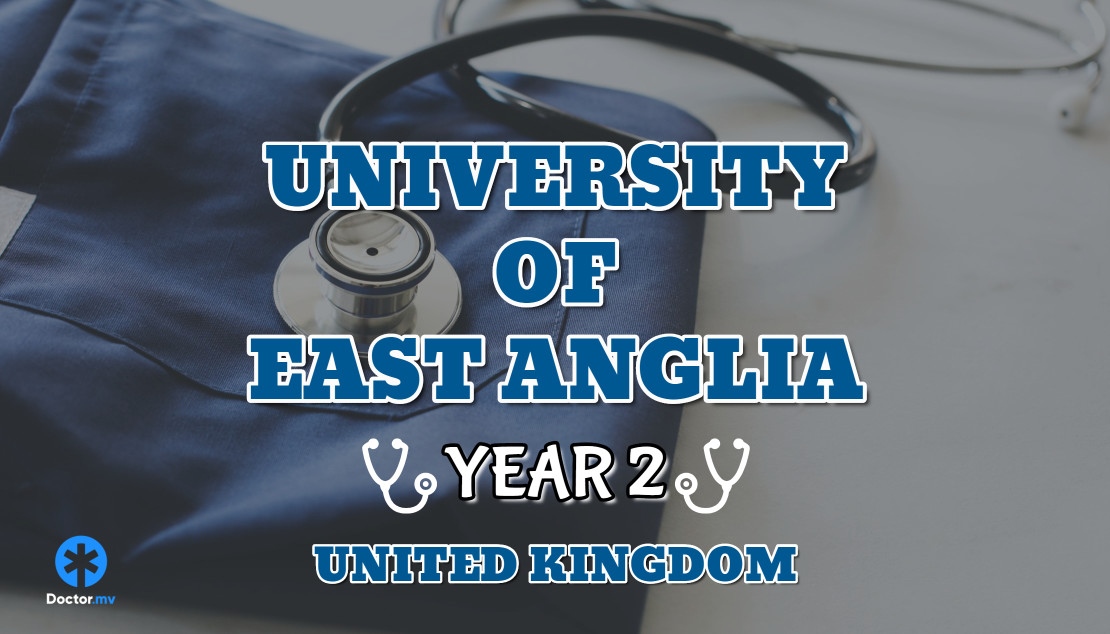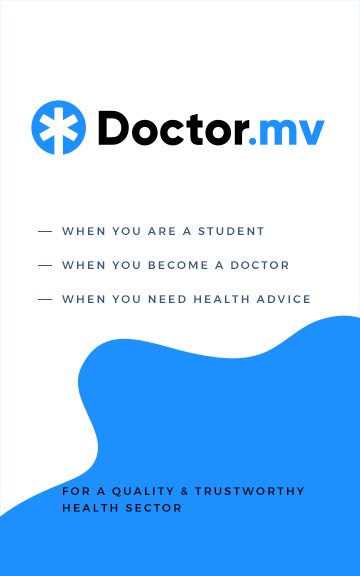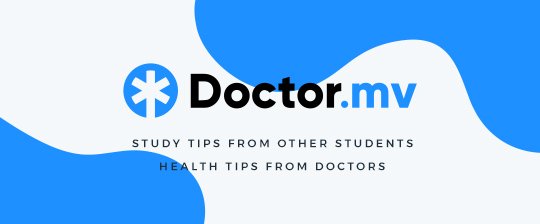I'm IZFA AMIR and this is My Medical Student Life

Nabeel Ibrahim
Published on: 07/10/2018
Second Year University of East Anglia United Kingdom Aminath Izfa AmirUniversity: University of East Anglia
Current Year: Second
Medical Specialty Interested in: Neurology
Most Inspiring Person: Dr. Oliver Sacks
Single Quality that defines a great Doctor: Empathy and being Passionate about what they do.
First of all, walk us through the step-by-step processes that you went through to get to where you are today?
I did my O'levels in Aminiya School. It was then I decided to aim for the President's Scholarship, to study Medicine in the UK. During the break I got after graduating, I completed Certificate 3 in IT from Cyryx College.
I decided to join CHSE for my A'levels. Upon graduating I got a volunteer job placement in Medica Hospital as a Clinical Assistant. I worked with an ENT doctor for about a month or two. Afterwards, I worked in ADK for a year. I liked it a lot there and would love to work there again during my holidays.
Last summer, I worked in Sh. Maroshi as part of the GoTeach program that was organised by MSA UK for a week. 4 other Maldivian students that were studying in the UK went with me. I got the opportunity to meet students that were going to take part in the O'level exams this year at Al Madhrasathul Munavvara. We got to form close bonds with the students since it was 7 or 8 students in a class. We got to see how their lives have been from their perspective. The opportunities they have and how they view their future. It is very different from what we grew up in Male'.
When did you first realize you wanted to study medicine?
Ever since I was little, my parents have been telling me that they wanted me to study Medicine. Yet, they always made sure that I knew I didn't have to pursue it if I didn't want to.
I'm not sure when, but somewhere along the way I did want to do it. I think it has something to do with my parents always telling me about Medicine. Plus, when I was 16, I read a book by the name, The Man Who Mistook His Wife For A Hat. It was written by Dr. Oliver Sacks, a renowned Neuroscientist. This book was what sparked my interest into Cognitive Neuroscience.
That's when I realized that this is something I would want to do as a career. The first step of getting there would be Medical School. It is possible to study Neuroscience as a specific degree, but, if it's the brain we're talking about, I do think learning about the whole human body would be worthwhile.
Take us through a typical study day.
I normally have classes from 9 am to 5 pm. Wednesdays are usually half days which finish latest by 1 pm. We only have Anatomy seminars that day, and Wednesdays are meant for sports and extra-curricular activities.
I try to wake up at the same time each day, regardless of the lecture schedule. If I do wake up early and have time before class, I try to go through the lecture slides for that day. I believe this helps a lot in Medicine, because sometimes if I go without reading the notes, it takes sometime to figure out what the topic is all about. It doesn't matter if I don't understand it on the first reading because, when the same information is later given in lectures it is much easier to absorb the information in class. The PowerPoint slides for the lecture are uploaded on the University website at the start of the week.
After I get home, I have something to eat. I cook in batches for the week, hence it saves a lot of time. Plus, I make sure I don't study as soon as I get home. I do something non-study related for around 1-2 hours, even if it's just cleaning my room. This helps me clear my head after a long day of back to back lectures.
At around 8 or 9 pm, I make proper notes according to the learning outcomes. We have allocated learning outcomes for the week. Also, the structure of the course is Problem Based Learning (PBL), hence we have PBL groups of 10 students. Each week we have meetings and we discuss different scenarios. We get the learning outcomes from these. Each person has to research on one and upload an article online. I try to research all the learning outcomes on my own, hence, I don't have to rely on the others for information. I use an app called Forest which helps me stay focused.
How do you keep a study routine during the exams?
We have Objective Structured Clinical Examinations (OSCE) after each module, and a written exam at the end of the year. We don't have any lectures when exams are just around the corner. This means I can study the whole day.
I wouldn't be writing any notes preparing up to exams. Plus, I try to make flash cards beforehand, especially if we're studying about specific diseases. I find that reading the textbook helps a lot. Even though they look bulky and thick, it doesn't much time to go through a chapter. I make sure I go through the lecture notes, hand-written notes and textbooks before an exam.
What is the best thing about living abroad?
It's very unusual to living in Male', so it's difficult to compare. The culture, people and food are all different. For example, where I live, it's difficult to find Halal food. The KFC's and fast-food joints do not provide Halal meat so you can't grab a quick bite when you're hungry.
I would say, that more and better resources are available here in the UK. I love the environment too. The people are friendly and they go out of their way to make me feel at home here. Moreover, the university provides a lot of services. We each have a personal adviser, who we can share any of our issues or problems. We also have many resources available from the Student Support Services and the International Student Advisers. Hence, even though I am away from home, I feel well supported and in a saf
Name your favorite medical text book.
Crash Course book series & the Oxford Clinical Handbook of Medicine.
Why is being updated on the latest medical findings important for the ordinary citizen?
Every person has to be aware of their own condition and how the disease affects them. Even if doctors have a list of signs and symptoms of a particular condition, it always manifests differently on different people. If a person is updated on the latest medical findings, they would know what would be applicable to them. Even if it's not about the drug/medicine, there are various things you can try at home to feel better, that may work for you.
Doctors especially in the internal medicine field, do not always have the time to read up on small findings, rather they would know about ground-breaking research and results. If a person does read on their own, they would often find things that would help them a lead a healthier life. Even little things like good posture, can have a great impact on one's life.
What do you know now that you wish you knew when you first started medical school?
Even if people tell you that Medical School is difficult, you don't actually realize the magnitude of it until you start it.
It is very different from A'levels. It's not that it is much more difficult but the massive amount of content in Medical School. The lecturer or teacher cannot ever tell you what you need to know, even if they provide you with the learning outcomes. In the end it is you who decides how much you want to learn. In every topic you can go so deep into it. You have to teach yourself.
What also took me by surprise is the level of competition between the students. I see students not sharing information to their friends to gain an advantage over them. It is very competitive.
What do you think needs to change in the health industry of the Maldives today?
I do not consider myself any sort of expert on the healthcare industry of Maldives. However, I would like to see Maldives moving towards having a more patient-centered care system. A system where patients are more involved in deciding their care, and given the information relating to their care, and therefore being given a choice over which treatments they can have. It is also important that patients are supported emotionally. Something that I have been taught in medical school is to always ask the patients about their “ideas, concerns, and expectations”, and this is something I think is vital for a good patient consultation.
For instance, it can be difficult for someone young to be diagnosed with a chronic illness. In such situations, making sure they are doing well aside from their illness is also vitally important. I do realize that this can take more time and use resources from a system where resources are already stretched.
During my time working in ADK, I have seen and worked with amazing doctors who do provide very patient centered care. While I was working in the obstetrics and gynecology department, I would see pregnant patients who had to have monthly, twice weekly, and weekly appointments. Many of these patients come from nearby islands, and some from far islands. Many doctors would ask the patients on which days they have ferries to and from their islands and schedule appointments for them on their preferred days. I would like to see this type of care provided all over the country, and at all points of patient contact with the healthcare system.
Finally, what is the one tip/advice you want to give to our readers?
If you want to do it, you can. It is going to get difficult. At some points you will feel as if you shouldn't be doing this, or as if you can't do it. If there is a will, there is a way.
The My Medical Student Life series was created for the sole purpose of helping medical students and aspiring doctors on their journey to become a successful Maldivian Healthcare Professional. Have a suggestion, idea or question? Email us.



Leave a comment
0 Comments